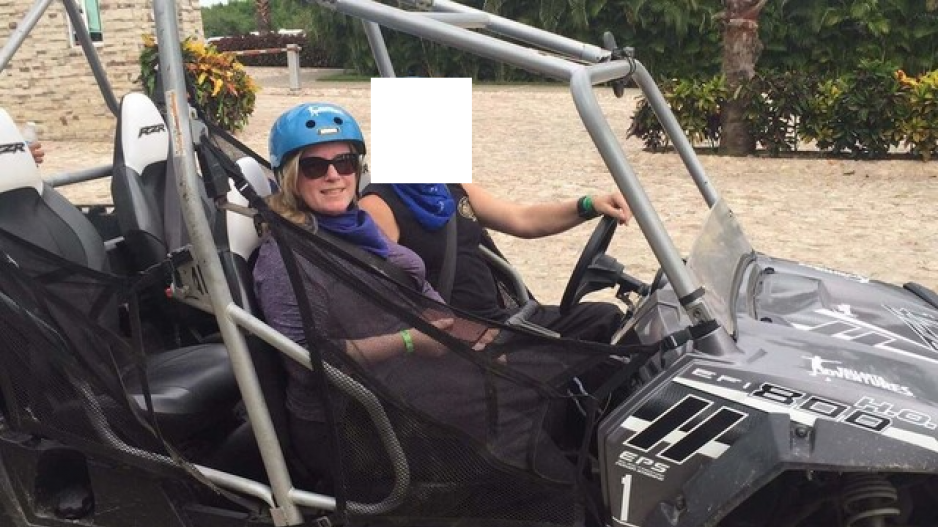Detailed records of the $1.35 million a Kelowna company's bookkeeper allegedly stole over a seven-year period were shown to the jury on the third day of the criminal trial Wednesday.
Carey Earl's fraud and theft trial, scheduled to run for three weeks, began on Monday. She's accused of defrauding Access Human Resources of the $1.35 million from 2011 to 2018 while she worked as the company's bookkeeper.
Access Human Resources, which has operated since 1993, provides support services for people in Kelowna with disabilities and is funded entirely by the provincial government through Community Living BC. Earl worked as a bookkeeper for the company since 2006.
Pamela Morley, a forensic accountant employed by the federal government, testified at the trial Wednesday afternoon, walking the jury through her investigation into Access Human Resources' finances between 2011 and 2018.
She testified that through payments to several credit cards registered to Carey and her husband Doug, payments to Carey, Doug and their son Rodney, and payments to Carey's own accounting company, a total of $1.915 million was transferred from Access Human Resources to Carey Earl over the seven years. Of this, the Crown alleges about $1.35 million was fraudulently obtained.
In one of Carey's Mastercard statements from 2011 – shown in court as an example of Morley's work sorting through the money trail – a $1,397 charge to El Dorado Resorts in Las Vegas was shown, along with charges from Mona Vie (a multi-level marketing company) and Carnival Cruise Miami. This credit card statement was allegedly paid off using Access Human Resources funds.
The Crown alleges Earl used a total of $848,318.43 of Access funds to pay off four separate credit cards over the seven years, through 190 separate payments. Rodney Earl, Carey's son, was added to Access' payroll in 2017 and 2018, and a total of $206,347.07 was allegedly transferred out of the company this way.
As Morley went over the details of the total amount of alleged stolen funds, Access' executive director and owner Cliff Andrusko broke down in tears as he watched from the gallery.
Earlier in the day Wednesday, Andrusko continued his own testimony, facing cross-examination from defence counsel Mark Chui. Chui claimed Andrusko had directed Earl to “siphon off” funds from Access to devalue the company, to protect his assets from a property division claim during his separation with his spouse.
“And after you wrapped up that family law case, you then turned your attention to blaming Carey Earl for the actions she took under your direction,” Chui alleged during cross examination.
But Andrusko adamantly rejected Chui's theory, calling it "completely false." He said he never saw records of the credit card payments or transfers to Rodney Earl until September 2018, when Earl's alleged fraud was uncovered.
“You’re making many assumptions here and you're leading in a direction, trying to take the spotlight off of your client,” Andrusko told Chui.
During re-examination by Crown prosecutor Andrew McLean, Andrusko said he didn't benefit in any way from the unauthorized transfers out of the company, and the money never came back to him in any way.
Andrusko also responded to Chui's allegations that Andrusko was laundering money by transferring money from Access to Cedar Investment Corp., another corporation Andrusko owned. Andrusko said Access was never involved in any criminal activity and the transfers were all above board.
“There's nothing wrong with that, it's my funds going into my business. It's not my funds going into someone else's bank account without my authorization, there's a big difference Mr. Chui,” Andrusko said.
“[The transfers to Cedar] are perfectly legitimate and they're also approved by the year-end accountant. And taxes are also paid on those ones.”
Carey's son Rodney is scheduled to testify as a Crown witness later this week, and the Crown is expected to wrap up its case by Friday. It's not clear at this time if the defence plans to call any evidence or if Carey will opt to testify in her defence, but the trial is scheduled to run for three weeks.




